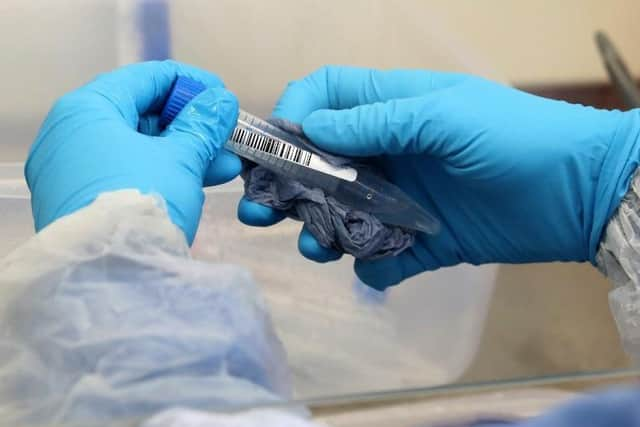Care homes account for nearly a quarter of all coronavirus-related deaths in Wakefield
and live on Freeview channel 276
Care home residents had accounted for nearly a quarter of all coronavirus-related deaths in Wakefield by the end of May, new figures reveal.
Although statistics show weekly Covid-19 fatalities across the UK are falling, scientists say the high overall death rate is because the coronavirus epidemic started earlier than predicted, with care homes poorly protected.
Advertisement
Hide AdAdvertisement
Hide AdA Public Health England review into disparities around the risk of coronavirus has identified age as the biggest factor, with pensioners aged 80 or older 70 times more likely to die from Covid-19 than those under 40.


Office for National Statistics data shows that in Wakefield, 283 deaths involving Covid-19 were provisionally registered up to May 30.
Of those, 86 occurred outside hospital – including 65 in care homes and five at private homes. A further 16 deaths occurred in hospices, other community establishments or elsewhere.
It means care homes accounted for 23% of all Covid-19 fatalities up to May 30.
Advertisement
Hide AdAdvertisement
Hide AdThe figures include deaths that occurred up to May 22 which were registered up to eight days later.
ONS data is based on where Covid-19 is mentioned anywhere on the death certificate.
Across England and Wales, more than 44,000 deaths involving Covid-19 were provisionally registered up to May 30. Of those, 36% occurred outside hospital – the majority in care homes.
Professor Neil Ferguson, of Imperial College London, told the House of Lords Science and Technology Committee he was “shocked” at how badly care home populations were protected globally.
Advertisement
Hide AdAdvertisement
Hide Ad“I, like many people, am shocked about how badly European – or countries around the world – have protected care home populations,” he said.
Asked about what could be done in future, he said: “If we had done a better job, or did do a better job, of reducing transmission in closed institutions like hospitals and care homes, we would have a little bit more room, wiggle room as it were.
“The infections in care homes and hospitals spilled back into the community, more commonly from the people who work in those institutions."
Professor Matt Keeling, of the University of Warwick, suggested to the committee that modellers “dropped the ball” on care homes early in the coronavirus crisis.
Advertisement
Hide AdAdvertisement
Hide Ad“It’s very easy to say we know care homes and hospitals are these huge collections of very vulnerable individuals, so maybe with hindsight we could have modelled those early on and thought about the impacts there," he said.
"I think the models offered our best estimates of what could happen in the short-term. Long-term predictions are much, much more difficult.”
The number of deaths involving coronavirus in England and Wales reached its lowest weekly level for seven weeks towards the end of last month, ONS data shows.
There were 2,589 deaths involving coronavirus in England and Wales registered in the week ending May 22.
In the week to May 30:
Deaths outside hospital increased by five, climbing to a total of 86
Hospital deaths increased by 23 to 197
The overall death toll climbed by 28, compared to a rise of 18 in the previous week